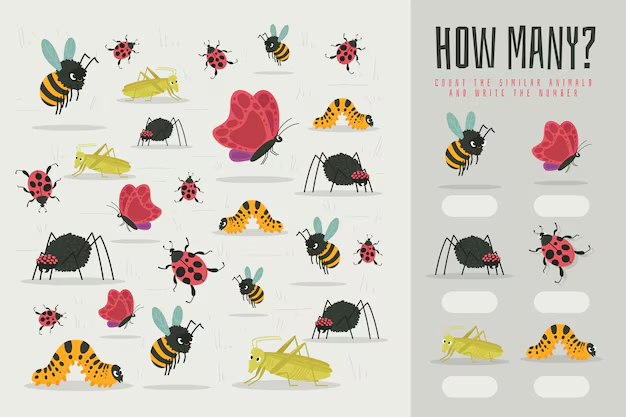Where Can You Find Spelling Bee Answers?
Introduction to spelling bees and their popularity
Spelling bees have become a thrilling spectacle, captivating audiences and participants alike. From the school gymnasium to national championships, these competitions showcase not just talent but also hard work and dedication. The excitement builds as contestants take their turn at the microphone, spelling intricate words that often leave both spectators and fellow competitors in awe.
For many students, participating in a spelling bee is more than just a chance to shine; it’s an opportunity to challenge themselves and enhance their vocabulary skills. With such popularity surrounding these contests, it’s no wonder that aspiring spellers are on the lookout for effective ways to prepare—and one of the most pressing questions they face is where they can find reliable spelling bee answers. Whether you’re gearing up for your first competition or looking to improve your chances of victory this year, exploring diverse resources can give you a competitive edge. Let’s dive into some proven methods for honing those spelling skills!
The importance of studying and finding reliable sources for spelling bee answers
Studying for spelling bees goes beyond just memorizing words. It’s about understanding their origins, usage, and nuances.
Finding reliable sources for spelling bee answers is essential. Not all resources are created equal. Some may offer incorrect spellings or outdated information that could hurt your performance.
Quality materials help build a strong foundation in vocabulary. They also expose you to different word patterns and etymologies, which can be incredibly beneficial during competitions.
Additionally, using trusted sources boosts confidence. When you know you’re practicing with accurate content, it reduces anxiety on competition day.
Diving into well-researched dictionaries or reputable educational websites can make a significant difference in preparation strategies. Engaging with diverse materials ensures a comprehensive grasp of language that extends far beyond the spelling bee stage itself.
Traditional methods of studying for spelling bees
Studying for spelling bees has roots in traditional methods that have stood the test of time. Many participants start by reading through word lists, often provided by schools or national competitions. These lists feature a mix of common and challenging words that can appear during contests.
Flashcards are another classic tool. Creating flashcards with the word on one side and its definition or origin on the other helps reinforce memory through active recall.
Group study sessions are beneficial as well. Practicing with peers allows participants to quiz each other, creating a fun atmosphere while enhancing learning.
Listening to pronunciations is important too. Resources like dictionaries can provide correct pronunciation, making it easier to grasp tricky terms.
Consistent practice is key. Daily drills help solidify knowledge and build confidence leading up to competition day.
Online resources for finding spelling bee answers
The digital age offers a plethora of online resources dedicated to spelling bees. Websites like the Scripps National Spelling Bee provide official lists and past competitions, making them invaluable for any serious contender.
Interactive platforms also abound. Apps designed specifically for word mastery can turn tedious study sessions into engaging challenges. These tools often feature quizzes that adapt to your skill level, ensuring you’re always challenged but never overwhelmed.
Social media groups have emerged as vibrant communities where participants share tips and strategies. You’ll find countless discussions about tricky words or effective memorization techniques.
YouTube is another treasure trove, hosting videos with expert advice from previous champions. Watching their techniques in action can offer insights not found in textbooks.
Don’t forget forums and educational websites filled with curated word lists and resource links, allowing you to explore various learning styles while preparing for your next competition.
Tips for effective studying and memorization
Effective studying for spelling bees goes beyond just reading words. It requires a strategic approach.
Start by breaking down challenging words into smaller parts. Understanding prefixes and suffixes can aid retention. This technique makes long, complex words less daunting.
Create flashcards with the word on one side and its definition or use in a sentence on the other. Regularly reviewing these cards reinforces your memory.
Practice aloud as well. Hearing yourself pronounce difficult words helps solidify them in your mind. You’ll build confidence while improving pronunciation simultaneously.
Incorporate varied study methods like quizzes or group practice sessions. Engaging with others not only adds fun but also exposes you to different learning techniques.
Set specific goals for each study session to stay focused and motivated. Celebrate small milestones along the way; it keeps enthusiasm high!
Common mistakes to avoid in spelling bee preparation
One of the biggest pitfalls students face is cramming. Last-minute studying rarely leads to success in spelling bees. It’s better to spread out your practice over weeks or even months.
Another mistake is relying solely on memorization without understanding word origins and meanings. Knowing the roots can provide context, making it easier to spell complex words correctly.
Many participants overlook the importance of practice with peers or family members. Spelling aloud in a competitive setting builds confidence and helps mimic real bee scenarios.
Ignoring previous spelling lists from past competitions can also be detrimental. These resources often feature recurring words that judges love to use again.
Don’t forget about rest days! Overworking yourself can lead to burnout, which diminishes retention and performance during actual events. Balance study time with relaxation for optimal results.
Conclusion and final thoughts on the significance of spelling bees and their impact on education
Spelling bees hold a special place in educational culture. They encourage students to engage with language, enhance their vocabulary, and develop important skills like critical thinking and public speaking. Participating in these competitions can boost confidence and foster a love for learning.
The journey of preparing for a spelling bee is as valuable as the competition itself. It promotes discipline, patience, and hard work—all essential traits for success in academics and beyond. Whether you’re a contestant or simply an admirer of this tradition, understanding where to find reliable spelling bee answers can greatly enhance your experience.
Educators often praise spelling bees not just for promoting literacy but also for building community among peers who share similar interests. The excitement surrounding the events encourages camaraderie among participants while teaching respect for one another’s efforts.
Engaging with spelling bees enriches education by providing students with unique opportunities to explore language creatively while honing their abilities. This age-old contest continues to inspire generations, emphasizing that words matter—and so does how we learn them.














Post Comment